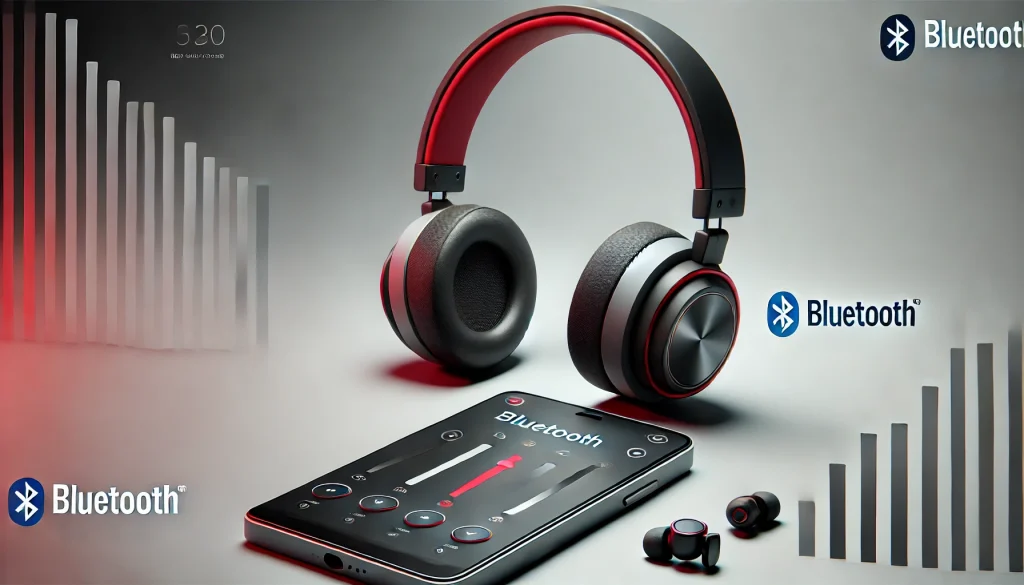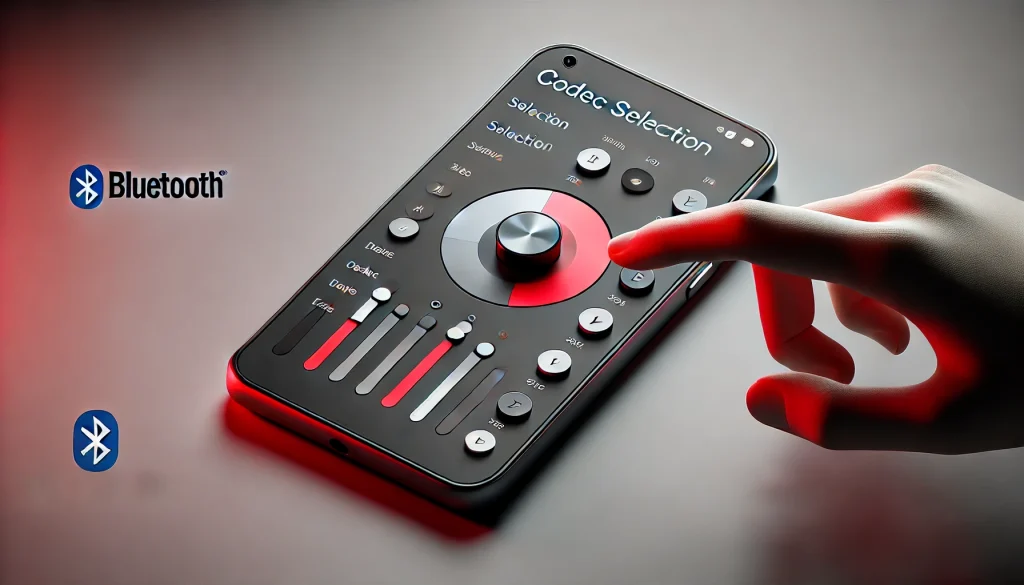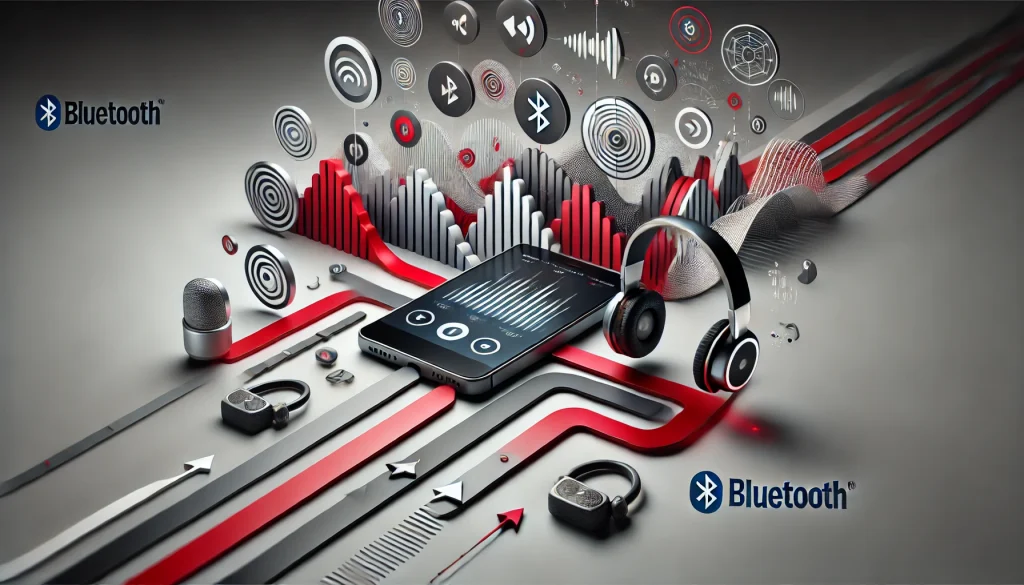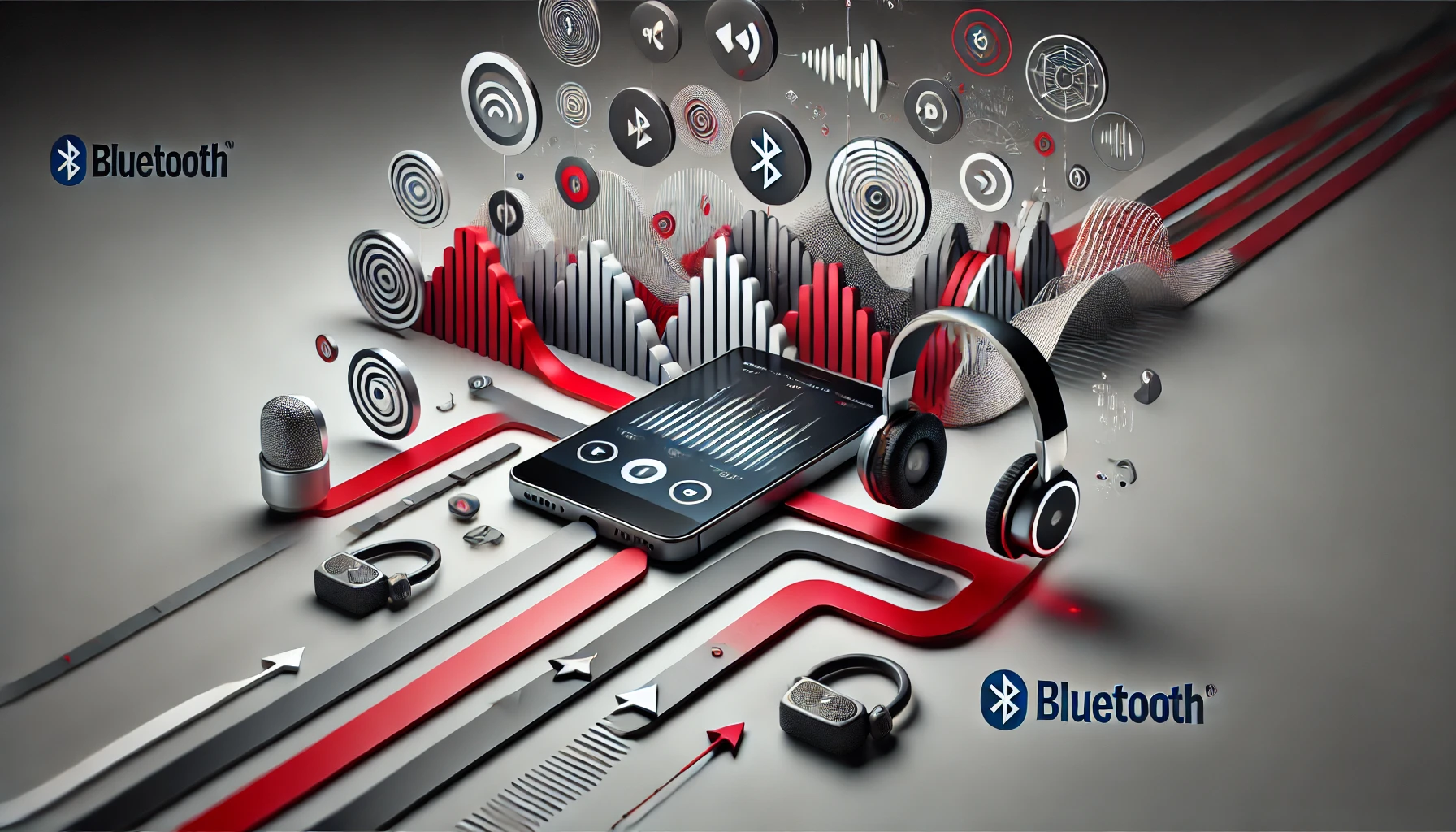
Wireless headphones have become a must-have accessory for music lovers, gamers, and anyone on the go. Yet, while most people focus on brand names or design, few pay attention to one critical aspect—Bluetooth codecs. Understanding Bluetooth codecs can significantly impact your listening experience, whether you’re streaming music, watching videos, or gaming.
Bluetooth codecs compress and transmit audio between your devices and wireless headphones. Choosing the right codec affects everything from sound quality to battery life. In this post, we’ll break down the essential Bluetooth codecs, explain how they work, and help you decide which one is right for you. Whether you’re an audiophile or a casual listener, understanding codecs will improve your wireless experience.
What are Bluetooth Codecs?
Bluetooth codecs are algorithms used to compress and decompress audio data sent wirelessly between a device (like a smartphone) and Bluetooth headphones. Codecs affect audio quality, transmission speed, and latency. Different codecs offer varying levels of performance, and not all devices or headphones support the same codecs.
Understanding these codecs is crucial because they determine how audio is transmitted and how it will sound on your wireless headphones. The next time you pair your headphones, you’ll know what codec to look for based on your device and use case.
Why are Bluetooth Codecs Important for Wireless Headphones?

Bluetooth codecs are at the heart of wireless headphone performance. They affect sound quality, latency, and connectivity stability, making them crucial for a good listening experience. Here’s why codecs matter:
- Sound Quality: Not all codecs are created equal when it comes to sound quality. SBC, for example, compresses audio heavily, resulting in lower sound fidelity. LDAC and aptX HD provide much better sound quality by allowing more data to pass through. If you’re someone who values crisp, high-quality audio, choosing headphones that support advanced codecs like LDAC will make a noticeable difference.
- Latency: Latency refers to the delay between what you hear and the action happening on-screen or during a call. aptX Low Latency and AAC are great choices for reducing lag, making them ideal for gaming and video streaming. Low-latency codecs sync audio and video more efficiently, providing a smoother experience.
- Compatibility: Devices and headphones must support the same codec to deliver the best performance. For instance, AAC works best with Apple devices, while aptX is optimized for Android devices. If your headphones support a codec that your device doesn’t, it will default to SBC, leading to poorer performance.
- Battery Life: The codec your wireless headphones use can also impact battery life. Higher-quality codecs like LDAC consume more battery, as they transmit more data, while SBC uses less power but sacrifices audio quality.
Choosing the right codec based on how you use your wireless headphones is key. If you’re streaming Netflix, playing online games, or listening to high-resolution audio files, picking a codec that balances quality and latency is important.
History of Bluetooth Codecs
The evolution of Bluetooth codecs has been a game-changer for wireless headphones. SBC was the first codec introduced in Bluetooth audio in 2003, offering a baseline for compatibility across all devices. However, as audio technology advanced, SBC began to fall short, especially in sound quality and latency.
In response, new codecs were developed. AAC, used by Apple, became the preferred codec for iOS devices, offering better sound than SBC but with a focus on mobile efficiency. Around the same time, aptX emerged as a top choice for Android users, providing a noticeable improvement in sound quality and lower latency. More recently, LDAC, introduced by Sony, has become the go-to codec for audiophiles due to its ability to transmit high-resolution audio.
As wireless technology continues to improve, the push for better codecs that balance sound quality, latency, and power consumption remains strong.
Types of Bluetooth Codecs
Different Bluetooth codecs cater to various needs, from basic compatibility to high-quality audio experiences. Here’s a comparison of the most common Bluetooth codecs:
| Codec | Bitrate | Latency | Devices |
|---|---|---|---|
| SBC | 328 kbps | High | Universal |
| AAC | 256 kbps | Low | Apple Devices |
| aptX | 352 kbps | Low | Android Devices |
| aptX HD | 576 kbps | Low | Android Devices |
| LDAC | 990 kbps | Low | Sony, Android |
- SBC: Works on all devices, but provides lower sound quality.
- AAC: Best for iPhone users, offering decent sound with low latency.
- aptX: Offers better sound and lower latency, widely supported by Android.
- aptX HD: An improvement over aptX, delivering higher-quality audio.
- LDAC: Superior sound quality, supporting high-resolution audio but with higher battery consumption.
How Do Bluetooth Codecs Work?

Bluetooth codecs work by compressing and decompressing audio data to be transmitted between your device and your wireless headphones. When you play audio on a Bluetooth device, the codec compresses the data to send it wirelessly. Once the data reaches your headphones, the codec decompresses it so you can hear it.
The quality of the compressed audio depends on the bitrate of the codec. Higher bitrates (like those found in LDAC) allow more data to pass through, resulting in clearer sound. Lower bitrates, as seen with SBC, result in more audio compression and lower sound quality.
Additionally, the codec plays a role in latency. Low-latency codecs like aptX Low Latency are optimized for real-time audio, ensuring that what you hear is synced with what you see, which is critical for gaming and video.
Pros & Cons of Different Bluetooth Codecs
| Codec | Pros | Cons |
|---|---|---|
| SBC | Universal, works on all devices | Low sound quality, high latency |
| AAC | Good sound quality on Apple devices | Limited performance on non-Apple devices |
| aptX | Low latency, good for Android | Not as widely supported as SBC or AAC |
| aptX HD | High-quality audio | Requires both device and headphones support |
| LDAC | Superior sound quality | High battery consumption, limited support |
Top Wireless Headphone Brands Supporting Bluetooth Codecs
Many top wireless headphone brands offer support for multiple Bluetooth codecs, allowing users to enjoy optimized audio experiences:
- Sony WH-1000XM5: Supports LDAC for high-resolution audio and SBC for universal compatibility. Perfect for audiophiles.
- Apple AirPods Pro 2: Features AAC, offering low-latency and great sound quality for iPhone users.
- Bose QuietComfort 45: Supports SBC and AAC, offering balanced performance for both Apple and Android users.
Each of these brands caters to different needs, whether you’re looking for high-end sound quality or seamless connectivity with your preferred devices.
Applications and Uses of Bluetooth Codecs in Wireless Headphones
Bluetooth codecs impact different use cases depending on how you plan to use your wireless headphones. Here are some scenarios:
Music Streaming
Bluetooth codecs play a crucial role in music streaming by affecting sound quality. High-quality codecs like aptX HD and LDAC provide better audio clarity, allowing users to enjoy richer sound when listening to their favorite songs. These codecs support higher bitrates, ensuring more data is transmitted, which leads to enhanced sound quality, especially in lossless formats. Music enthusiasts prefer headphones with advanced codecs because they reduce audio compression, maintaining the depth and detail of the original recording. If you care about high-fidelity sound, choosing headphones with support for these codecs can make a noticeable difference.
Gaming
When it comes to gaming, low-latency codecs are essential. aptX Low Latency and LLAC minimize audio delays, providing a seamless gaming experience. These codecs ensure that the sound matches the actions on screen, which is critical for fast-paced games where timing is everything. Without low-latency codecs, you may experience delays in sound, which can be frustrating during competitive gameplay. Bluetooth headphones equipped with these codecs allow gamers to enjoy high-quality sound with minimal lag, enhancing their overall gaming experience.
Video Streaming
For video streaming, synchronization between audio and video is key. AAC and aptX codecs are often used to ensure that the sound is perfectly in sync with the visuals. This prevents any noticeable lag between what you see on the screen and what you hear. Whether you’re watching movies, YouTube videos, or TV shows, Bluetooth headphones with good codec support improve the clarity of dialogue and sound effects. Choosing headphones with these codecs ensures a smooth, immersive experience when streaming content on platforms like Netflix or YouTube.
Resources
- Headphone Guide Pro. Bluetooth Codec Guide for Wireless Headphones
- SoundGuys. Understanding Bluetooth Codecs
- PCMag. What are Bluetooth Codecs? A Guide to Everything from AAC to SBC
- Headphonesty. Bluetooth Audio Codecs Explained
- Electronics Hub. What is a Bluetooth Codec?

Brijesh Gohil is the founder of Tech Brij, A popular Tech Blog which is focused on Tech tips & Buying Guides. You can follow him on Facebook, Twitter, Google + & LinkedIn.

